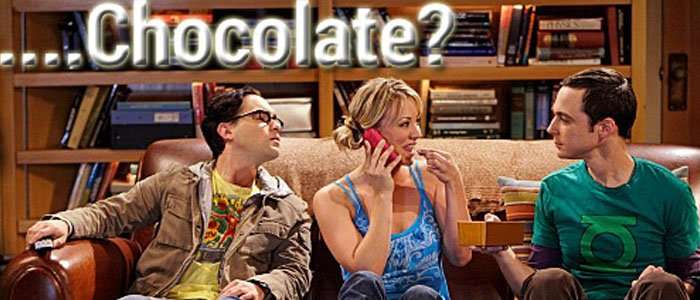The Situation Comedy of Reward Ethics
In an episode of The Big Bang Theory called “The Gothowitz Deviation,” characters Sheldon, Penny and Leonard perfectly demonstrate an ongoing debate among behaviorists and economists. Is it possible to change people with rewards? More specifically, can incentive programs and employee rewards influence employee behavior and customer loyalty? Let’s see how the show answered this question.
The situation in “The Gothowitz Deviation” is this: Sheldon’s roommate, Leonard, is dating Penny. Penny’s colorful personality disrupts Sheldon’s need for order and routine. Sheldon’s solution? Feed Penny delicious chocolates as positive reinforcement of “good” behavior.
Clear the table? Get a chocolate.
Apologize for almost sitting in Sheldon’s spot? Get a chocolate.
Refraining from talking too much during TV time? Get a chocolate.
Leonard picks up on Sheldon’s scheme and confronts him about it.
Leonard protests that Sheldon can’t just train his girlfriend like a “lab rat,” but Sheldon argues that it’s just a little “harmless, scientifically valid protocol that will make our lives better.”
Positive Reinforcement or Bribery?
The conflict that Leonard and Sheldon demonstrate has come up time and again in conversations about using rewards to motivate employees and customers. Is it condescending to “train” someone to change their behaviors, or is it a valid strategy for improving business?
Some think it amounts to bribery that doesn’t actually help influence employee behavior or customer thought process in a meaningful way. Others have found it to be an effective employee motivation and customer loyalty strategy. So who’s right in this debate?
Sheldon’s side—we’ll call it Team Positive Reinforcement—has a point. The chocolates do motivate Penny. Way back in the 1920s, behaviorist B.F. Skinner conducted studies that showed both rats and humans are more likely to increase behaviors when they receive positive reinforcement for those behaviors. Sheldon cites this very study to justify giving Penny positive-reinforcement chocolates.
But there’s something very important that Sheldon fails mention. Skinner had a controversial belief that human beings lack free will and their actions are all merely responses to their environment.
To a degree, Skinner had a point. We’re more likely to do things if they’re positively reinforced. It’s the basis of most dog-training and child-rearing. But grown people are a little more complex than dogs and children. How long do you think Sheldon could continue reinforcing Penny’s behaviors with chocolates before she wised up to his schemes and realized he was manipulating her? How would she feel afterward?
Does this mean that rewards are a waste of time and companies should avoid using them to influence employee behavior or customer loyalty? Not at all.
The Right Way to Reward (i.e. Not Like in “The Gothowitz Deviation”)
There are ways to reward behavior that don’t come across as sneaky and controlling. Context—how and when the reward is presented, who is presenting it, and what professional impact occurs along with the reward—matters a lot. As a 2016 Incentive Research Foundation study discovered,
“between 40 and 50 percent of an employee’s preferred recognition experience has nothing to do with the physical reward itself.”
Imagine if, in “The Gothowitz Deviation,” Sheldon gave Penny the chocolate and said, “Penny, I really appreciate that you cleared the table. It makes my life a little easier and it shows you respect my living space. Here’s a chocolate from my candy stash.”
In this version of events, Sheldon not only rewarded Penny, he showed her recognition and appreciation, adding meaning and emotion to the reward. Penny would likely value the reward more in this scenario. Leonard probably wouldn’t have taken issue with Sheldon’s methods because they were upfront, sincere, and made everyone happier.
The takeaway? Employee rewards and customer loyalty incentives are only lab rat food if that’s how you present them. Rewards doled out repeatedly for certain behaviors may increase those behaviors for a while, but the change won’t be long-term or meaningful. But when you’re forthright about how and why you’re offering rewards, they’ll have a greater effect on your reward program participants.



